Trauma lives in the body.
Even when memories fade or stories remain unclear, the nervous system holds imprints of overwhelm, fear, disconnection, and unmet needs. This is especially true with developmental trauma, which forms slowly through chronic stress or inconsistent caregiving in childhood, and generational trauma, which is passed down through families and communities over time.
While talk-based approaches can help us understand trauma, many people find that understanding alone doesn’t fully shift the deeper patterns living in their bodies. This is where acupuncture becomes a powerful, regulating, and deeply supportive tool.
Acupuncture has been used for thousands of years to rebalance internal systems, calm the body’s stress responses, and restore a sense of connection and safety. Modern neuroscience now helps us understand why it is so effective for trauma healing.
Why Trauma Lives in the Nervous System
When overwhelming experiences occur—especially early in life—the nervous system adapts for survival. It may become overly alert and reactive (fight/flight), or shut down and disconnect (freeze/dissociation). These patterns can continue long after the threat is gone.
Developmental trauma shapes:
- Self-regulation
- Attachment and relationships
- Core beliefs about safety, worth, and connection
- The stress response
- Emotional expression
- Body-based reactions and chronic tension
Generational trauma adds another layer—patterns inherited through family dynamics, nervous system states, and even epigenetics.
Acupuncture works directly with these embodied patterns by helping the nervous system unwind and reorganize.
How Acupuncture Supports Trauma Healing
1. It calms overactive survival responses
Trauma often keeps the body in a chronic state of stress. Acupuncture activates the parasympathetic nervous system—the branch responsible for rest, digestion, and recovery.
This shift:
- Lowers cortisol
- Reduces hypervigilance
- Softens anxiety
- Helps the body feel safe enough to relax
For someone with developmental trauma, this may be the first time the body experiences deep physiological safety.
2. It helps regulate emotions
Trauma can disrupt the communication between brain regions responsible for emotional processing. Acupuncture supports the limbic system and helps stabilize emotional waves.
Clients often report:
- Feeling more grounded
- Less overwhelmed
- A greater sense of internal steadiness
- More access to their emotional range without shutting down
This regulation is essential for healing trauma patterns held since childhood.
3. It supports reconnection with the body
Trauma often creates a disconnect or mistrust of bodily sensations. Acupuncture provides a gentle, non-invasive way to re-enter the body without force or overwhelm.
This reconnection allows clients to:
- Notice sensations with curiosity rather than fear
- Rebuild a sense of internal safety
- Strengthen interoception (the ability to feel and understand what’s happening inside)
This is vital for healing developmental and generational trauma, both of which impact a person’s sense of self and embodiment.
4. It unwinds chronic patterns of tension and holding
Trauma is stored not just emotionally but physically—in muscles, fascia, breath patterns, posture, and energy flow.
Acupuncture helps release:
- Chronic neck, jaw, shoulder, or back tension
- Digestive issues linked to stress
- Sleep disturbances
- Headaches and migraines
- Patterns of collapse or numbness
When the body softens, the mind follows.
5. It supports the healing of generational patterns
Generational trauma is often expressed through inherited nervous system states or coping mechanisms. Acupuncture supports the release of these patterns on both physical and emotional levels.
Many individuals describe feeling:
- Freed from “family patterns” they’ve always carried
- Less burdened by inherited stress or fears
- More aligned with who they truly are
This creates space for new ways of being that aren’t shaped by ancestral survival responses.
6. It pairs beautifully with somatic therapy and trauma-informed work
Acupuncture doesn’t replace different types of therapy—but it strengthens it.
Together, acupuncture and somatic work help:
- Build capacity in the nervous system
- Deepen embodiment
- Support emotional processing
- Create the internal safety needed for deeper trauma healing
Acupuncture prepares the ground so other modalities can work more effectively.
Healing Trauma Is About Regulating the Body
Whether trauma comes from early childhood experiences, ancestral lineage, or overwhelming life events, healing requires more than insight—it requires regulating the nervous system and restoring safety in the body.
Acupuncture offers:
- A gentle pathway back to regulation
- A way to soften survival states
- New embodied experiences of safety
- Support for emotional release
- A bridge between the mind, body, and spirit
For many clients, acupuncture becomes a turning point in their trauma healing journey—a place where their body finally feels supported, understood, and invited to heal.
If you’re navigating developmental trauma, generational trauma, or chronic dysregulation, acupuncture can be a profoundly restorative part of your healing path.
Interested in learning more about how acupuncture can help you! Book a consult with Dr. Sinead Corrigan at Flourish now.





